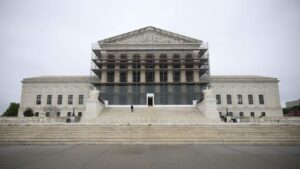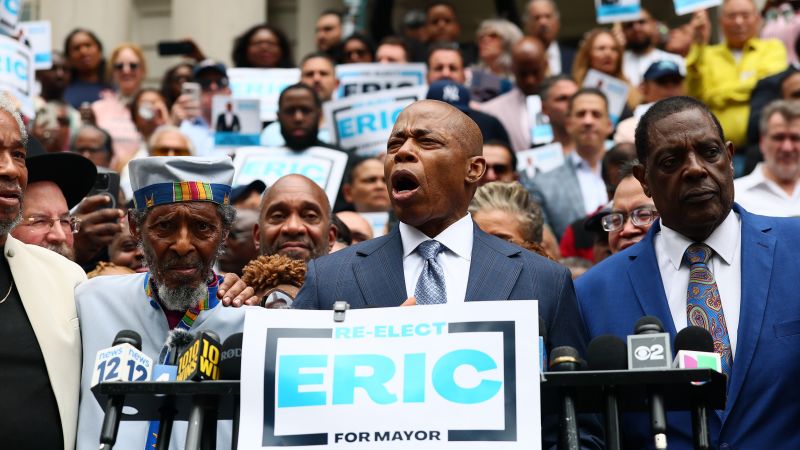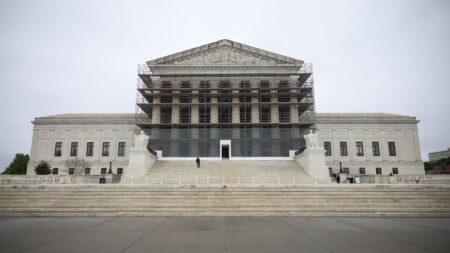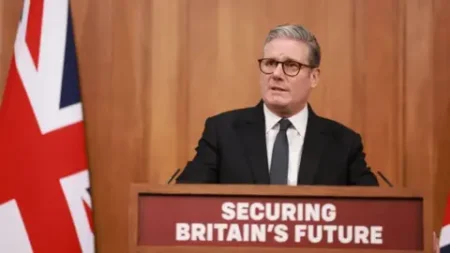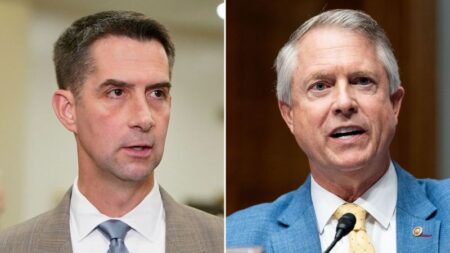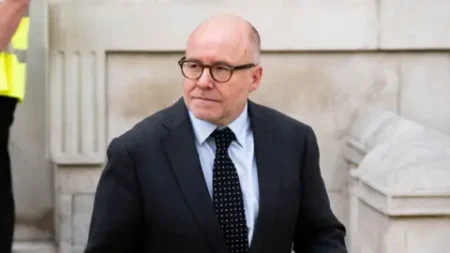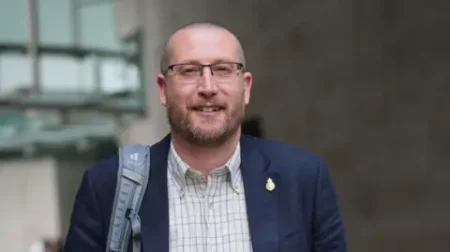In the fast-paced world of American politics, few figures have attracted as much attention recently as Eric Adams, the mayor of New York City, and his challenger, Zohran Mamdani, a 33-year-old democratic socialist. Eric Adams, once considered a rising star in the Democratic Party, now finds his reelection hanging in the balance as he confronts the emerging political presence of Mamdani. Tensions have escalated significantly since Mamdani’s impressive performance in the Democratic primary left many observers electrified and the national political landscape on edge.
Adams wasted no time in critiquing Mamdani’s campaign, which he described as a charade designed to mislead the voters of New York. He characterized Mamdani as an inexperienced politician pushing an unrealistic agenda, labeling his ideals as rooted in socialism. Adams articulated his vision for New York, remarking, “This is a city not of socialism,” while attempting to position himself as a tested leader devoted to public safety and economic recovery. In his address on the steps of City Hall, he sought to portray Mamdani as affluent and disconnected from the pressing needs of Black and Latino communities, saying, “This election is a choice between a candidate with a blue collar and one with a suit and silver spoon.”
In a moment that showcased the contrast between them, Adams emphasized the frank realities of life in New York—differentiating himself as a man of the people. His rhetoric suggested a stark choice for voters, implying that they must choose between genuine progress and “empty promises.” When Mamdani was shown clips of Adams’ remarks during an appearance on CNN, he dismissed the former police captain’s image as outdated, humorously noting that “they’re not looking that great right now.”
Eric Adams, age 64, has a storied career spanning from being a retired police officer to serving as a state senator and Brooklyn’s borough president. Four years ago, he campaigned staunchly on a law-and-order platform and now touts achievements like a decline in crime and growth in job creation. However, his administration has not been without controversy. Notably, he chose not to run in the Democratic primary for this election, a decision tied to the dropping of corruption charges against him—an event that some speculate could harm his credibility.
Adams’ approach to campaigning in his reelection bid appears aimed at the same constituency that was previously courted by former Governor Andrew Cuomo—moderate Democrats wary of Mamdani’s proposals. This encompasses a broad spectrum of voters, including Black voters, business leaders, and real estate moguls, all of whom could perceive Mamdani’s platform as a significant threat. Adams reiterated this sentiment by insisting, “This is not a city where you use idealism to state you’re giving everything to everyone for free,” implying that jobs and opportunities are a more substantive route toward self-sufficiency than the free offerings that he attributes to Mamdani.
Mamdani, in turn, took a more confrontational stance in response to Adams’ perceived attacks, suggesting that the current mayor was using preemptive tactics to deflect from his administration’s record of rising living costs and discontent in the community. He asserted, “I understand what he’s doing. I would much rather talk about me than I would about his record if I was him,” suggesting that affordability would be the main issue going forward as the election heats up.
As Adams launched his campaign surrounded by a diverse coalition, including religious leaders and notable political figures, many observers noted the complexity of his coalition. Among his supporters were individuals with checkered pasts in New York politics, which raised eyebrows given the scandals that have plagued his administration. Despite such alliances, voter sentiment appears to show a significant challenge for Adams; polling indicated that his approval ratings were hovering at a concerning 20%.
The political landscape continues to shift, with protests during Adams’ speeches showcasing the division within the electorate and discontent from various factions. Moreover, while he does enjoy the perks of incumbency, including media coverage and name recognition, the recent challenges presented by Mamdani’s swift rise and the increasingly progressive narrative could complicate his path to retaining office. Ultimately, as both candidates gear up for an intensely contested race, it remains unclear whether Adams can rekindle the support that catapulted him into the mayor’s office or if Mamdani’s fresh perspectives and appeal to younger voters will overshadow his efforts.

